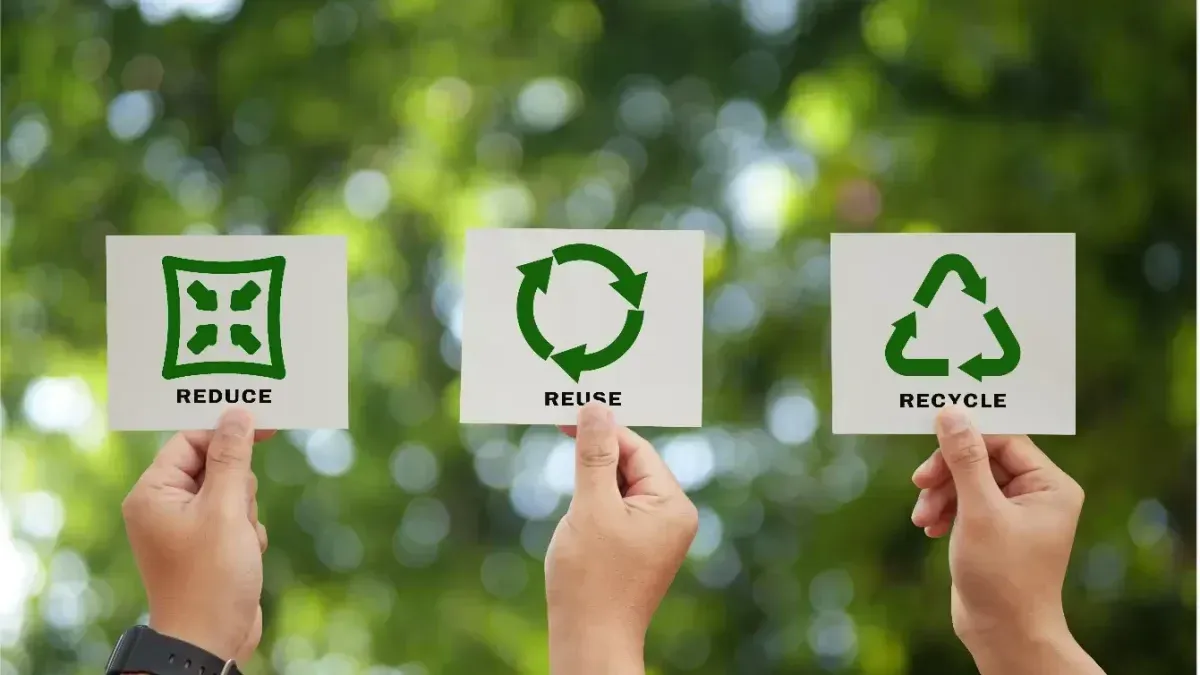BLOG
BLOG

Recycling Junk Cars for Environmental Protection The Problem with Abandoned Vehicles
The Problem with Abandoned Vehicles
Abandoned vehicles are not just an eyesore; they're a missed opportunity for recycling and a blight on the environment. At Tas Recycling, we're taking this problem head-on. Imagine the space a single abandoned car takes up—the same space could be used for public green areas, extra parking, or community projects. More than just taking up precious space, these vehicles leak hazardous substances like oil and coolant, posing a real threat to our local ecosystems. But here's where we see potential rather than problems. Every part of that abandoned vehicle, from the metal body to the battery, has a chance at a second life. Through recycling, we can recover valuable materials, reduce the need for new raw materials, and cut down on environmental pollution. Think of it as giving these vehicles a dignified send-off, where they can serve a new purpose instead of rusting away.
Enhancing Our Planet Through Vehicle Recycling
When we talk about the environmental benefits of vehicle recycling, we're not only highlighting an effective way to cut down on waste but also protecting our natural resources from unnecessary depletion.
Significant Waste Reduction - One of the standout advantages of vehicle recycling lies in its impressive capability to minimize waste. Imagine the sheer volume of materials a single car encompasses - metals, plastics, rubber, and glass, to name a few. Instead of these components taking up indefinite space in landfills, vehicle recycling salvages them, giving these materials a second life. The process significantly cuts down the overall volume of waste, ensuring that over 75% of your car's materials don’t just end up as another statistic in global waste figures.
Mitigating Pollution - Beyond just waste reduction, vehicle recycling has a profound effect in curbing pollution. Old vehicles, especially those left to rust and degrade, are not just eyesores but are also environmental hazards. Hazardous fluids and metals can seep into the ground, contaminating soil and water sources, posing risks to wildlife and human populations alike. Recycling ensures that these potentially toxic substances are properly disposed of or repurposed, dramatically reducing the likelihood of soil and water contamination. By choosing to recycle, you're actively contributing to a cleaner, safer environment.
Impact on Resource Conservation
Maximizing Energy Savings
One of the key advantages of metal recycling is the significant energy saving it offers. Crafting new metal products from raw resources demands a high energy input, from the extraction process to transportation and finally, manufacturing. In contrast, recycling metals can reduce energy consumption dramatically. For example, recycling aluminum can save up to 95% of the energy required to produce the same amount of aluminum from raw materials. Similarly, recycling steel can conserve 60% to 75% of the energy necessary to produce new steel. These savings are crucial in our global efforts to reduce carbon footprints and combat climate change.
Comprehensive Metal Recovery
Junk cars, often seen as mere scraps, are actually treasure troves of recyclable materials. At Tas Recycling, we focus on recovering a wide array of metals from these vehicles, including:
Aluminum - Commonly used in car parts such as engines, body panels, and wheels. Recycling aluminum not only saves energy but also reduces the need for bauxite ore mining.
Steel - The primary component of most vehicles. Its recovery and reuse help save energy and resources, reducing the demand for new raw steel production.
Copper - Found in electric wiring and electronics. Copper recycling is particularly valuable due to its extensive use and the energy saved compared to new copper production.
Lead - Often used in car batteries. Recycling lead is essential for preventing environmental contamination and saving energy.
By focusing on these metals, and more, we ensure that every part of your junk car is put to good use, conserving resources, and preventing unnecessary mining. Our process not only supports global sustainability efforts but also contributes to a circular economy, where every resource is valued and reused to its fullest potential.
The Impact of Car Recycling: Studies and Success
Research underscores the critical role car recycling plays in our environmental stewardship efforts. It's not just about disposing of old vehicles responsibly; it's about recovering valuable materials and ensuring they are reused, thus significantly reducing the need for new raw materials. For instance, the recycling of metals from vehicles conserves an immense amount of energy and raw materials and substantially reduces greenhouse gas emissions compared to the production of new metals.
Beyond the compelling statistics that advocate for the efficacy of car recycling, there are numerous success stories from around the globe that highlight its positive environmental impact. These programs not only prove the viability of car recycling as a practice but also demonstrate its contribution to sustainable development goals. For example, initiatives that focus on the meticulous dismantling of vehicles ensure that up to 75% of a car's components can be recycled and repurposed, showcasing the tangible benefits of such recycling efforts.
Through supporting and implementing car recycling, we participate in a cycle of sustainability that benefits the environment, the economy, and the global community. Each step taken in this direction is a step towards a more sustainable future, reinforcing the importance of ongoing research and the sharing of success stories to inspire and inform future efforts. For more in-depth insights and to understand how Tas Recycling is leading the charge in this crucial environmental initiative, visit Tas Recycling. Our dedication to recycling today paves the way for a greener tomorrow.
The Positive Impact of Car Recycling on Local Economies and Employment
Car recycling, a vital component of the modern sustainability movement, extends far beyond mere environmental benefits. Its capacity to invigorate local economies and engender job opportunities is profound, demanding a closer examination.
Economic Boost Through Car Recycling
Firstly, the process of car recycling acts as a catalyst for economic growth within local communities. By transforming end-of-life vehicles into valuable raw materials, car recycling affords industries a cost-effective alternative to the extraction and processing of virgin materials. This efficiency not only conserves resources but significantly reduces manufacturing expenses, leading to lower product costs and stimulating consumer spending. The circulation of money within the local economy is thus invigorated, contributing to overall economic health and sustainability.
Creating Employment Opportunities
Furthermore, the car recycling industry is a substantial source of employment. From the initial collection and processing of vehicles to the final stages of material recycling and resale, each step of the process requires human expertise and labor. This creates a wide array of job opportunities, varying in skill level from manual labor to specialized technical roles. The growth of this sector fosters an inclusive labor market, accommodating workers with different backgrounds and skill sets, thereby reducing unemployment rates and enhancing community welfare.
At Tas Recycling, we are proud to be a part of this economically beneficial and socially responsible industry. By prioritizing efficient recycling practices, we not only contribute to the health of the planet but also support the economic vitality and job market of our local community.
The Complete Guide to the Junk Car Recycling Journey at Tas Recycling
Understanding the Junk Car Recycling Process
At Tas Recycling, the transformation of a junk car into reusable materials is a meticulous and environmentally responsible process. From the moment a vehicle is classified as 'junk', often due to it being non-operational, aged, or damaged beyond repair, it begins a new life cycle through recycling. The initial step involves a thorough inspection to identify and separate hazardous materials, which are then disposed of following strict environmental guidelines. Following this, valuable components and materials such as the engine, transmission, and electronics are carefully dismantled. These parts can be refurbished and sold for reuse in other vehicles, further extending their lifecycle and reducing waste.
Metals are the next focus, with steel and aluminum being separated and processed for recycling. This material is melted down and repurposed for various industries, significantly reducing the need for new raw materials and the environmental impact of mining activities. The process not only conserves natural resources but also saves energy and reduces greenhouse gas emissions, showcasing Tas Recycling's commitment to sustainability.
Fostering Community Involvement in Vehicle Recycling
Tas Recycling believes in the power of community action to enhance the impact of vehicle recycling. Communities can play a pivotal role by organizing recycling initiatives and awareness campaigns. This collective effort can significantly boost recycling rates and environmental conservation. Local workshops and seminars can educate residents about the importance and benefits of recycling old vehicles, including reducing the local carbon footprint and promoting a cleaner, healthier environment.
Additionally, community groups can collaborate with local authorities and businesses like Tas Recycling to set up more accessible recycling points or collection services. Such initiatives not only contribute to environmental sustainability but also strengthen community bonds and foster a culture of responsible recycling.
By understanding the extensive process involved in recycling a junk car and the ways communities can contribute, we can collectively make a significant environmental impact. Tas Recycling is dedicated to leading by example, offering efficient, environmentally friendly recycling solutions that benefit both the planet and its inhabitants.
Understanding Policies and Legislation in Car Recycling
Navigating the complex landscape of policies and legislation related to car recycling is crucial for ensuring that we adhere to the highest standards of environmental stewardship and legal compliance. In this section, we will demystify the current laws and regulations that underpin our industry's operations and explore the incentives introduced by the government to promote vehicle recycling.
The Legal Framework Governing Car Recycling
The specialized regulation of car recycling is shaped by a critical understanding of the environmental impact of end-of-life vehicles and a commitment to reducing this footprint. Current laws mandate specific treatment of vehicles at the end of their lifecycle, focusing on the safe disposal of hazardous materials and the maximization of recyclable components. These regulations are designed not only to protect the environment but also to encourage the recovery of valuable materials, helping to reduce the demand for new raw materials and conserve natural resources.
Encouraging Recycling Through Government Incentives
To further support the recycling initiative, various government incentives have been put in place, encouraging both consumers and businesses to engage in eco-friendly disposal and recycling practices. These incentives range from tax breaks and subsidies for recycling facilities that meet certain environmental standards, to benefit schemes for individuals who choose to recycle their vehicles responsibly. Such measures not only bolster the recycling industry but also make sustainable choices more accessible and financially attractive for everyone involved.
By staying informed about these vital aspects of car recycling, we ensure our operations not only comply with current regulations but also contribute positively to environmental conservation efforts. At Tas Recycling, we are committed to navigating these policies and leveraging available incentives to enhance our recycling practices, reaffirming our dedication to sustainability and responsible waste management.
AFFILIATED WITH




QUICK LINKS
Home
Find your parts
Search by image
Multi-Part Search
Sell your Car
Contact
AUTO PARTS
1197 Roby Conley Rd, Marion, NC 28752
RECYCLING
1197 Roby Conley Rd, Marion, NC 28752
OPENING HOURS (EST/EDT)
Monday-Friday: 8:00 AM to 5:30 PM
Saturday: 8:00 AM to 12:39 PM
© 2024 TAS Recycling, Inc.
All Rights Reserved
AFFILIATED WITH



QUICK LINKS
Home
Find your parts
Search by image
Multi-Part Search
Sell your Car
Contact
AUTO PARTS
1197 Roby Conley Rd, Marion, NC 28752
RECYCLING
1197 Roby Conley Rd, Marion, NC 28752
OPENING HOURS (EST/EDT)
Monday-Friday: 8:00 AM to 5:30 PM
Saturday: 8:00 AM to 12:30 PM
© 2024 TAS Recycling, Inc. All Rights Reserved
